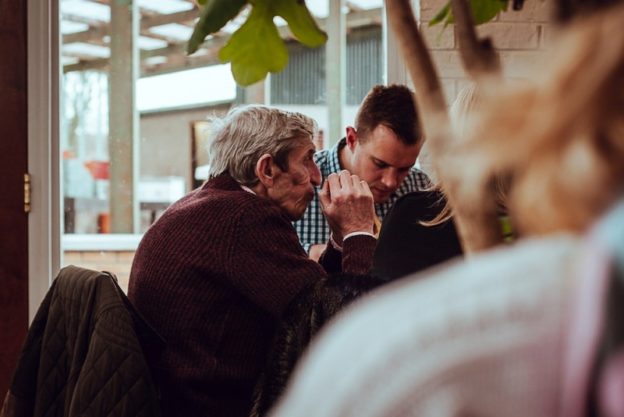(5 Minute Read)
Caring for senior loved ones is a difficult job, and means taking steps to protect the elders in your life from falling prey to scams and other kinds of financial abuse. In fact, one in every five Americans age 65 or older has been abused financially, according to a 2010 survey by the Investor Protection Trust–a truly grotesque statistic.
Three steps you can take to mitigate the risk of financial abuse to your senior loved ones are: first, coordinating estate planning, second, asking them to grant you power of attorney so you may access their health and financial records, and finally, talking to them about what kinds of scams exist in the world today that might affect them.
Estate Planning
Estate planning makes your senior loved one’s plans crystal clear and will save time and emotional frustration for everyone in the long run. When you help the elderly in your life set up an estate plan, you’ll be doing the following: generating a list of contacts to determine who the key players are in end of life plans, agreeing upon a safe location to store sensitive documents for when the time comes, orchestrating a will and getting it notarized, and discussing funeral arrangements. Completing these tasks while your senior loved one is sharp and ready to tackle the challenge is important, but getting to that point can be tricky. They may not feel “ready” to consider their end of life plans, but engaging with them in timely estate planning can greatly mitigate their risk to financial abuse.
Power of Attorney
Your aging loved one will also need a healthy family member or friend to be designated with power of attorney. It’s invaluable that the person selected for this task understands the responsibilities they’ll face. Those with power of attorney are responsible for managing the accounts of their senior loved one, so it needs to be someone they can trust. This is critical because they’ll be able to note even the smallest changes in cash flow. They’ll be able to judge if a transaction is a normal expense or the activity of a scammer.
Common Scams Elders Encounter
An article by the National Council on Aging lists ten of the most common scams elders encounter, but there are a few worth focusing on here: telephone scams, email scams, and health insurance scams.
Telephone scams are high volume for senior citizens. The Huffington Post article titled Study Finds Elderly Scams Cost Twelve Times More Than Previously Thought, noted, “Seniors who lost $20 or more to financial exploitation then went on to lose an average of $2,000 a year to other scams over the next five years.” Talking to your senior loved one about the way these scams work and encouraging them to ask questions of telemarketers before making purchases, or even taking down information and sharing it with you can help keep them secure. Email scams are also very common traps for seniors. Because most senior citizens are unfamiliar with spam mail and phishing scams, they might not initially understand that an email from a certain Nigerian prince is actually fraudulent, especially since phishing emails often look like they’ve been sent by a verified institution. Take the time to explain how it’s always a good idea to call institutions and ask about the email to verify.
Lastly, health insurance scams are a real nuisance for seniors using government services like Medicare. Scam artists know that every individual over the age of sixty-five will qualify for Medicare, so they often resort to health insurance scams because it requires very little prep on their part. A simple phone call to a vulnerable elderly person can land them with all the information they need to steal an identity.
The best way to take care of your senior loved ones is by being honest with them. People of the world will try to take advantage of anyone they view as vulnerable. Giving your senior loved one an arsenal of information to protect them from this common onslaught will help them navigate as they age. For more tips, strategies, or answers to questions like, “What is a viatical settlement?” visit our website, or subscribe to our newsletter.
Case Study:
Speaking of changes in cash flow, Lilly, age 92, has been living with her daughter for the past three years due to dwindling cash reserves and poor health.
Lilly’s daughter has Power of Attorney and sold Lilly’s life insurance policy (also known as a viatical settlement) for $115,000 since the premiums had become such a burden.





